NAT’25 Proceedings Available
We are pleased to announce that the proceedings of the Neuroadaptive 2025.
To all participants: thank you for an amazing NAT’25! All submissions are available with a DOI through the button below.
We are pleased to announce that the proceedings of the Neuroadaptive 2025.
We are pleased to announce this year’s schedule for the NAT conference.
We are pleased to offer a unique opportunity for Master’s students, PhD.
The brAIn network meeting will be Europe’s first in-depth gathering dedicated to Neuroadaptive AI. We will explore the benefits for individuals and societies, the key scientific challenges, and the ethical and regulatory considerations.
A key goal of this meeting is to lay the foundation for a Neuroadaptive AI network, originating from Europe—uniting researchers, entrepreneurs, and thought leaders in an initiative that stands alongside global efforts to advance AI.
By supporting and participating in the brAIn network, you’ll help shape the future of human-AI interaction across industries and societies, setting the stage for a new wave of innovation that merges neuroscience and AI.

Dr. Dr. h.c. Joscha Bach
Dr. Joscha Bach is a leading expert in cognitive science and artificial intelligence, known for his work on cognitive architectures, artificial general intelligence (AGI), and the philosophy of mind.
In his keynote at NAT’25, Dr. Bach will discuss how his research connects to core concepts in Neuroadaptive Technology, including the alignment between human cognitive processes and adaptive AI systems. He will explore themes such as human-AI symbiosis, cognitive modeling, and the evolution of intelligent systems that respond dynamically to human needs. His talk will challenge conventional thinking on how machines and humans can collaborate more effectively, offering new perspectives on the future of adaptive technology and human-machine interaction.
He has held key positions at prominent institutions such as the MIT Media Lab and the Harvard Program for Evolutionary Dynamics. His research focuses on understanding how intelligence emerges from both human cognition and machine learning models, exploring topics like consciousness, perception, and mental representation.
Dr. Bach’s work seeks to bridge the gap between cognitive science and AI, providing new frameworks for the development of adaptive and human-compatible AI systems. His thought-provoking ideas have made him a highly sought-after speaker at conferences worldwide, where he shares his vision of AI’s role in society and its ethical implications.
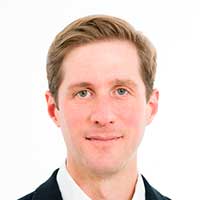
Prof. Dr.-Ing. Moritz Grosse-Wentrup
Prof. Dr.-Ing. Moritz Grosse-Wentrup leads the Neuroinformatics Research Group at the University of Vienna, focusing on the convergence of machine learning, neurotechnology, and biosignal processing.
Brain-Artificial Intelligence Interfaces (BAIs)
The introduction of machine learning methods into the field of brain-computer interfacing (BCIs), which began almost two decades ago, has enabled unprecedented performance gains. Today, machine learning algorithms have become an indispensable component of BCIs. However, the field of machine learning has undergone a radical transformation in the past decade, giving rise to artificial intelligence (AI) systems that surpass human performance in many real-world tasks. In this talk, I argue that it is time for the BCI community to embrace these developments and build Brain-AI Interfaces (BAIs), i.e., systems that leverage the power of modern AI technologies to enable natural human-computer interaction. In particular, I suggest that to realize BAIs, we need to move beyond using AIs merely to decode neuronal signals and instead integrate AI agents into the neuroadaptive feedback loop. I will showcase a prototype of a conversational BAI and outline future directions and challenges in realizing the full potential of BAIs.
He earned his Dipl.-Ing. in Electrical and Information Engineering (2004) and his Dr.-Ing. (2008) from the Technical University of Munich.
His career includes postdoctoral research at the Max Planck Institute for Biological Cybernetics (2008–2013), leading a research group at the Max Planck Institute for Intelligent Systems (2013–2017), and serving as a Professor of Data Science at the Ludwig-Maximilians-Universität München (2017–2019).
At NAT’25, Prof. Grosse-Wentrup will deliver a keynote titled “Brain–Artificial Intelligence Interfaces (BAIs),” discussing the integration of modern AI technologies into BCIs to enable natural human–computer interaction.

Christian Hummert is the Research Director at the Agency for Innovation in Cybersecurity (Cyberagentur) in Halle, Germany.
Keynote: From resilience to vigilance. Is it smart to hand over responsibility to machines?
Christian Hummert is the Research Director at the Agency for Innovation in Cybersecurity (Cyberagentur) in Halle, Germany. Previously, he served as the Head of the “Digital Forensics” division at the Central Office for Information Technology in the Security Sector (ZITiS) and was a Professor of IT Security/Digital Forensics at Mittweida University of Applied Sciences, where he now holds an honorary professorship. He also teaches as a lecturer at Ludwig Maximilian University (LMU) in Munich. Dr. Hummert has over ten years of experience in the field of digital forensics and spent six years working as a practitioner at the State Criminal Police Office of Thuringia. He has led several large research and development projects and has taught extensively in the field of cybersecurity.

Thomas Jarzombek is a German CDU politician and an advocate for science and innovation policy. As the former Coordinator for Aerospace and Commissioner for the Digital Economy and Start-ups, and now as the CDU/CSU parliamentary group’s spokesperson for education and research, his political work centers on strengthening research integrity, modernizing science policy, and promoting innovation ecosystems in Germany.
Picture: © Tobias Koch
Keynote: AI in Germany and Europe

Prof. Dr. Thorsten O. Zander is a leading pioneer in the field of Neuroadaptive Technology and the founder of Passive Brain-Computer Interfaces (pBCIs).
What Is Neuroadaptive AI and Why Will It Change Much More Than You Think?
Neuroadaptivity refers to the capability of a technological system to continuously and implicitly adapt its behavior based on the real-time interpretation of a user’s neurophysiological state. This process relies on passive Brain-Computer Interfaces (pBCIs) to monitor and interpret cognitive, affective, and motivational processes, enabling systems to respond in a context-sensitive manner to the user’s moment-to-moment mental state — such as, but not limited to their workload, attention, engagement, or intention — without requiring any explicit input.
In the context of Human-Computer Interaction (HCI), neuroadaptive systems use this information to dynamically optimize usability, performance, safety, and experience. They transform machines from passive tools into responsive partners that are capable of tuning their behavior in real-time based on the user’s internal state — thus enabling a new paradigm of implicit, state-aware interaction.
Extending this principle beyond short-term interaction, Neuroadaptivity also encompasses the development of long-term user models that capture how a person subjectively perceives, interprets, and evaluates the world. These models go beyond simple state classification to represent the user’s evolving patterns of emotional responses, values, cognitive strategies, and other meaning-making processes.
When such user models are used to inform an AI system, they give rise to Neuroadaptive AI — an artificial intelligence agent that does not merely predict or imitate behavior but aligns itself with the user’s inner world. This alignment allows the AI to act in a way that is not only functionally effective but also experientially coherent, reflecting the user’s unique perspective and subjective reality.
By grounding artificial cognition in the user’s own neurocognitive and affective dynamics, Neuroadaptive AI offers a fundamentally new approach to the alignment problem — creating systems that are truly human-compatible. Instead of approximating human goals abstractly, these systems learn to understand and respect the person they interact with, building a foundation for co-adaptive, trustworthy, and ethically grounded machine intelligence.
As the head of the Neuroadaptive Human-Computer Interaction Lab at Brandenburg University of Technology and Scientific Director of Zander Labs, and director of the Society for Neuroadaptive Technology, he has shaped the field through foundational contributions to brain-computer interfacing, cognition-aware systems, and human-compatible AI.
His research bridges neuroscience, artificial intelligence, and real-world application, with a focus on systems that interpret the user’s mental and emotional state to enable adaptive, intuitive interaction. Thorsten co-leads the large-scale NAFAS project, supported by a €30M grant, and co-founded the brAIn network.

Prof. Dr. Willem Zuidema
Willem Zuidema is associate professor of Natural Language Processing, Explainable AI and Cognitive Modelling at the University of Amsterdam. Also, he is fellow of the Brussels Institute for Advances Study (BRIAS), Spring Semester 2025.
Blackbox meets blackbox: predicting brain activation from language models, and understanding what that means.
Language models have surprised the world with their linguistic abilities. Intriguingly, the internal states of language models (while processing an input sentence) align quite well with the brain activity that can be measured in humans (while processing the same sentence). In this talk, I discuss how this alignment can be measured, how robust these findings are, and, most importantly, how we can figure out what drives the alignment between models and the brain. I will go over a number of methodological pitfalls that can lead to spurious correlations between high-dimension vector spaces, and argue for a research program that tries to open the blackbox of language models to achieve not only accurate predictions of brain activity and possible ways to “read minds”, but also to advance the cognitive neuroscience of language.
He leads a group that has done pioneering and impactful research into the interpretability of deep learning models, including text-based language models and neural speech models. His work has been published in a diversity of venues across cognitive science and AI, including NeurIPS, ICLR, EACL, EMNLP, ACL, Journal of AI Research, Psychonomic Bulletin & Review, Journal of Phonetics, PNAS and Nature.
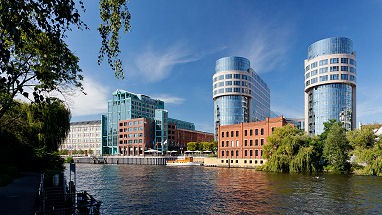
NAT’25 will take place in Berlin, Germany, at the conference hotel ABION Spreebogen (****). The conference venue is located in the heart of Berlin, close to the main station (~5 Minutes by public transport).
Hotel rooms at the conference hotel can be booked here.
The conference registration fee includes access to the conference, lunch and coffee.
Other hotels and hostels, like the Hotel Tiergarten Berlin Mitte (***), the Amstel House Hostel Berlin (**) and the Wallyard Concept Hostel, can be found nearby the conference venue (a walk of less than 15 minutes).
Registration fees. All inclusive (conference, lunch included) + 50,- for the social evening
Early Bird Standard
(before 15th of January, 2025)
EUR 600,-
Early Bird Industry / Exhibitors
(before 15th of January, 2025)
EUR 800,-
Early Bird PostDoc
(before 15th of January, 2025)
EUR 500,-
Early Bird PhD/Student
(before 15th of January, 2025)
EUR 450,-
Regular Standard
(before 9th of March, 2025)
EUR 700,-
Regular Industry / Exhibitors
(before 9th of March, 2025)
EUR 900,-
Regular PostDoc
(before 9th of March, 2025)
EUR 600,-
Regular PhD/Student
(before 9th of March, 2025)
EUR 500,-
Startups@brAIn network meeting
(attendance on 9th and 10th of April, 2025 only)
(before 9th of March, 2025)
EUR 300,-
Late Standard
(from 10th of March, 2025)
EUR 800,-
Late Industry / Exhibitors
(from 10th of March, 2025)
EUR 1000,-
Late PostDoc
(from 10th of March, 2025)
EUR 700,-
Late PhD/Student
(from 10th of March, 2025)
EUR 600,-
Special: 2-Day-Ticket
(attendance on 9th and 10th of April, 2025 only)
(from 10th of March, 2025)
EUR 200,-
Below are listed the most important dates and deadlines concerning the NAT’25 conference.
Website open for contribution submission
1st of December, 2024
Contribution submission deadline
15th of January, 2025
Final Deadline extended to 5th of February, 2025
Author feedback
10th of March, 2025
Conference
7th – 10th of April, 2025
We cordially invite you to submit contributions of research in the area of neuroadaptive technology, including artificial intelligence, fundamentals and applied work. The call for papers (see below; also available as PDF) has a detailed list of relevant topics.
NAT’25 welcomes novel research results and ideas, but also explicitly invites already-published work to provide an overview of relevant research in the different domains to a new audience.
All accepted contributions will be published in the conference proceedings.
Submissions can be made through the submission page, using the provided template.
Please feel free to share the call for papers to your academic and industrial network.
Use this form to submit your contributions to the NAT’25 conference. Please use the provided template in a compatible format.
-The deadline to submit your contribution to the NAT’25 conference is extended until 5th of February, 2025 now.-
Please use the attached Word template to structure and style your submission.
The maximum length of the submission is 2 pages, including at most 1 figure. References do not count towards the maximum page length. Please also include at least 2 keywords. Further details are given or described in the template document itself;.
To ensure a blind review, please do not include your names and affiliations in the template. Instead, you will be asked to provide them during the submission process. Also try to not provide other obvious clues to your own identities, e.g. by referring to own past work: “We (Zander et al., 2022) showed that…”
When your submission is finished, please use the submission page on this website to submit it for consideration.
Broad Areas
Specific Topics

Conference Chair
Prof. Dr. Thorsten Zander

Conference Co-Chair
Dr. Marius Klug
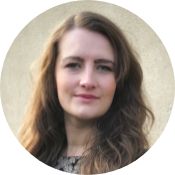
Conference Co-Chair
Lea Rabe
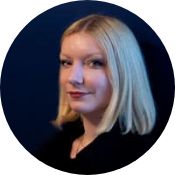
Session Chair
Aleksandra Smilek

Session Chair
Lou de Kerhuelvez
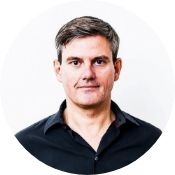
Author, Podcaster
Dr. Thomas Ramge
The Microsoft CMT service was used for managing the peer-reviewing process for this conference. This service was provided for free by Microsoft and they bore all expenses, including costs for Azure cloud services as well as for software development and support.
| Cookie | Duration | Description |
|---|---|---|
| cookielawinfo-checkbox-analytics | 11 months | This cookie is set by GDPR Cookie Consent plugin. The cookie is used to store the user consent for the cookies in the category "Analytics". |
| cookielawinfo-checkbox-functional | 11 months | The cookie is set by GDPR cookie consent to record the user consent for the cookies in the category "Functional". |
| cookielawinfo-checkbox-necessary | 11 months | This cookie is set by GDPR Cookie Consent plugin. The cookies is used to store the user consent for the cookies in the category "Necessary". |
| cookielawinfo-checkbox-others | 11 months | This cookie is set by GDPR Cookie Consent plugin. The cookie is used to store the user consent for the cookies in the category "Other. |
| cookielawinfo-checkbox-performance | 11 months | This cookie is set by GDPR Cookie Consent plugin. The cookie is used to store the user consent for the cookies in the category "Performance". |
| viewed_cookie_policy | 11 months | The cookie is set by the GDPR Cookie Consent plugin and is used to store whether or not user has consented to the use of cookies. It does not store any personal data. |